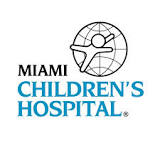Efficacy and Safety Study of Octafibrin for On-demand Treatment of Acute Bleeding and to Prevent Bleeding During and After Surgery
| Status: | Completed |
|---|---|
| Conditions: | Hematology |
| Therapuetic Areas: | Hematology |
| Healthy: | No |
| Age Range: | 12 - Any |
| Updated: | 3/24/2019 |
| Start Date: | September 2014 |
| End Date: | February 14, 2018 |
Prospective, Open-label, Uncontrolled, Phase III Study to Assess the Efficacy and Safety of Octafibrin for On-demand Treatment of Acute Bleeding and to Prevent Bleeding During and After Surgery in Subjects With Congenital Fibrinogen Deficiency
The purpose of the study is to assess the efficacy and safety of Octafibrin for on-demand
treatment of acute bleeding in subjects with congenital fibrinogen deficiency.
treatment of acute bleeding in subjects with congenital fibrinogen deficiency.
Inclusion Criteria:
- Aged ≥12 years (only 18 and above in Russia)
- Documented diagnosis of congenital fibrinogen deficiency, expected to require
on-demand treatment for bleeding or surgical prophylaxis:
- Fibrinogen deficiency manifested as afibrinogenaemia or severe hypofibrinogenaemia.
- Historical plasma fibrinogen activity of <50 mg/dL or levels below the limit of
detection of the local assay method.
- Expected to have an acute bleeding episode (spontaneous or after trauma) or planning
to undergo elective surgery.
- Informed consent signed by the subject or legal guardian.
Exclusion Criteria:
- Life expectancy <6 months.
- Bleeding disorder other than congenital fibrinogen deficiency, including
dysfibrinogenaemia.
- Prophylactic treatment with a fibrinogen concentrate.
Treatment with:
- Any fibrinogen concentrate or other fibrinogen-containing blood product within 2 weeks
prior to start of treatment for the bleeding episode or surgery.
- Any coagulation-active drug (i.e., non-steroidal anti-inflammatory drugs, warfarin,
coumarin derivatives, platelet aggregation inhibitors) within 1 week prior to start of
treatment for the bleeding episode or surgery, or as a planned or expected medication
during the time period from Day 1 until 24 hours (i.e., 1 day) after the last
Octafibrin infusion.
Presence or history of:
- Hypersensitivity to study medication.
- Deep vein thrombosis or pulmonary embolism within 1 year prior to start of treatment
for the bleeding episode or surgery.
- Arterial thrombosis within 1 year prior to start of treatment for the bleeding episode
or surgery
- Hypersensitivity to human plasma proteins.
- Oesophageal varicose bleeding.
- End-stage liver disease (i.e., Child-Pugh score B or C).
Pregnant women within the first 20 weeks of gestation.
Currently breast-feeding.
Known positive HIV infection with a viral load >200 particles/μL or >400,000 copies/mL.
Polytrauma 1 year prior to start of treatment for the bleeding episode or surgery.
Diagnosis or suspicion of a neutralizing anti-fibrinogen inhibitor currently or any time in
the past.
Acute or chronic medical condition which may, in the opinion of investigator, affect the
conduct of the study, including
- Subjects receiving immune-modulating drugs (other than anti-retroviral chemotherapy)
such as alpha-interferon, prednisone (equivalent to >10 mg/day), or similar drugs at
study start.
- Subjects having evidence or a history (within the previous 12 months) of abuse of any
licit or illicit drug substance.
Participation in another interventional clinical study currently or during the past 4
weeks.
We found this trial at
2
sites
Miami Children's Hospital Welcome to Miami Children
Click here to add this to my saved trials
Click here to add this to my saved trials
